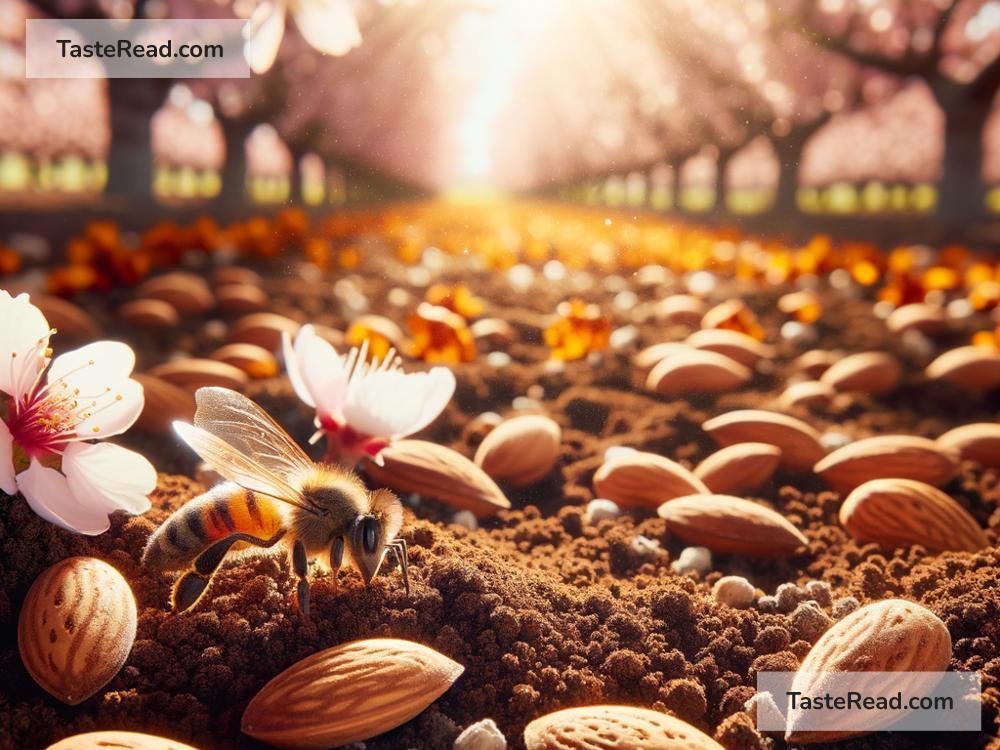How to Choose Pollinator-Friendly Almonds: A Simple Guide
Almonds make for a delicious and nutritious snack. However, behind every almond we enjoy, there’s a hardworking bee. Bees play a crucial role in pollinating almond trees, helping them produce the nuts we love. Sadly, modern farming practices have not always been kind to these essential creatures. So, how can we enjoy our almonds without harming our tiny, buzzing friends? The answer lies in choosing pollinator-friendly almonds. Here’s a beginner-friendly guide on how to make that choice.
Understanding the Buzz Around Almonds and Bees
First off, it’s important to understand why bees are so critical in the production of almonds. Almonds are 100% reliant on bees for pollination. Without bees, almond trees cannot produce nuts. However, the process of pollinating almond orchards can be hazardous for bees due to pesticide exposure and the large-scale monoculture practices. This has led to massive bee losses in some areas. That’s why choosing almonds that are sustainable and bee-friendly is crucial.
What Are Pollinator-Friendly Almonds?
Pollinator-friendly almonds come from farms that adopt practices designed to protect and enhance the health of bees. These practices include reducing pesticide use, providing a variety of plants for bees to forage on, ensuring access to clean water, and fostering habitats for bees to thrive. By supporting such farms, you contribute to safeguarding bees and the broader ecosystem.
How to Choose Pollinator-Friendly Almonds
1. Look for Certifications
One of the easiest ways to ensure you’re buying pollinator-friendly almonds is to look for certain certifications on the packaging. Certifications such as USDA Organic, Fair Trade, or the Bee Friendly Farming (BFF) certification signal that the almonds were produced with practices that consider the health of bees.
2. Support Small and Local Producers
Small, local farms are often more invested in sustainable practices, including those that are bee-friendly. By purchasing almonds directly from these producers, you can inquire about their farming methods firsthand and ensure they align with pollinator-friendly practices. Plus, local almonds will have traveled less distance to reach you, reducing their carbon footprint.
3. Do Your Research
Many brands are starting to acknowledge the importance of sustainable practices, including supporting pollinators. Look up brands that openly discuss their efforts to protect bees and their habitats. Often, you’ll find this information on their websites or sustainability reports.
4. Organic Is a Good Start
While organic certification doesn’t guarantee that a product is 100% pollinator-friendly, it does mean that the use of synthetic pesticides and fertilizers is restricted. These chemicals can harm bees, so choosing organic almonds is a step in the right direction.
5. Spread the Word
As you learn more about pollinator-friendly almonds and begin to make more conscious choices, share your knowledge with others. The more people are aware of the importance of protecting pollinators, the greater the demand for sustainable practices will be.
Why It Matters
Choosing pollinator-friendly almonds is not just about saving bees; it’s about ensuring the sustainability of our food system. Bees and other pollinators are essential for the production of many crops. By protecting them, we’re also protecting our food diversity and security.
Moreover, by supporting farms and brands that prioritize the health of the ecosystem, you’re contributing to a movement that values biodiversity and the well-being of future generations. It’s a simple choice that can have profound impacts.
Conclusion
Choosing pollinator-friendly almonds is a straightforward yet impactful way to contribute to the health of our planet. By opting for almonds produced with practices that protect and support bees, you’re making a statement about the kind of world you want to live in and support. The next time you’re in the store or shopping online for almonds, remember that your choices can be a powerful force for good. Let’s choose wisely and support those who are working to make the almond industry a friendlier place for our pollinator pals. Together, we can make a difference, one almond at a time.


